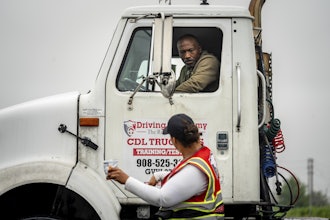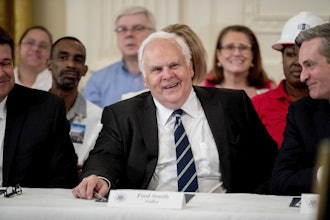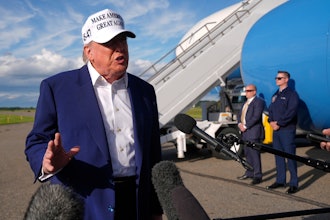BOSTON (AP) -- Massachusetts Gov. Deval Patrick signed a law on Thursday that would raise the state's $8 per hour minimum wage to a U.S.-leading $11 per hour by 2017.
The governor told a Statehouse ceremony that the new law would provide financial help to thousands of low-income workers, but said more needed to be done to improve economic opportunity for all Massachusetts residents.
"This minimum wage is great progress, but it's not a livable wage," Patrick said to applause from members of Raise Up Massachusetts, a coalition that had gathered more than 350,000 signatures in favor of a minimum wage hike.
"Keep looking ahead and above all, keep in mind that people for whom the American dream is still just a dream ... deserve the chance for themselves and their families to dream along with the rest of us," Patrick said.
The first increase in the minimum wage, to $9 per hour, will take effect on Jan. 1. The hourly wage will bump up to $10 on Jan. 1, 2016 and to $11 on Jan. 1, 2017, which would be above any increase currently planned in other states.
"The minimum wage should help people out of poverty, not trap people in poverty," said Richard Trumka, president of the national AFL-CIO, who attended the ceremony. In some states, he said, calls for increasing the minimum wage were being resisted by lawmakers and governors.
President Barack Obama, who has proposed hiking the federal minimum wage to $10.10 per hour, has praised Massachusetts lawmakers for "standing up for working men and women."
State officials said the new law would affect about 600,000 minimum wage workers along with an additional 200,000 tipped workers, such as restaurant servers, whose minimum wage before tips would rise from $2.63 per hour to $3.75 per hour by 2017.
Some business leaders remained skeptical of the changes.
"This is a one-sided piece of legislation that largely ignores the pleas of the small businesses for balance, and instead ensures that Massachusetts will continue to be one of the most expensive and difficult places to operate a retail business in the nation," said Jon Hurst, president of the Retailers Association of Massachusetts, in a statement.
But other business owners backed the change. Holly Sklar, head of the group Business for a Fair Minimum Wage, argued that putting more money into the pockets of workers would generate more economic activity in the state.
The new law also seeks to stabilize unemployment insurance costs for businesses by imposing a three-year rate freeze and making adjustments in rating tables.













![7 001[1]](https://img.manufacturing.net/mindful/im/workspaces/default/uploads/2025/06/7-0011.S7Uqlbb3HV.jpg?auto=format%2Ccompress&crop=focalpoint&fit=crop&fp-x=0.53&fp-y=0.44&h=220&q=70&w=330)








